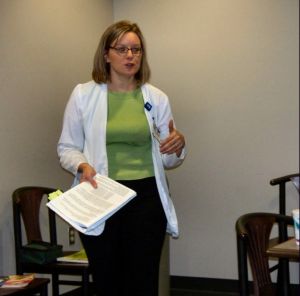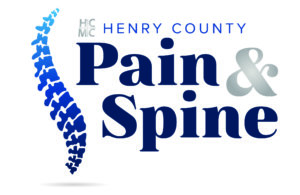
PARIS, TN – As many Americans seek to find the ultimate diet that will help them shed pounds or improve their health, one of the oldest dieting plans known to man is gaining in popularity.
Intermittent fasting, or time-restricted eating as it’s known among medical professionals, is becoming more and more popular among Americans. Simply put, fasting restricts the times that one eats during a specific period, which could be daily or maybe just a few days per week.
“People have fasted for various reasons for thousands of years,” said Kim Dempsey, MS, RDN, LDN, CDCES, a registered dietitian and certified diabetes care and education specialist at Henry County Medical Center. “Fasting has been used in different religious or spiritual practices for thousands of years, but what is new about fasting is that it is now being used for the treatment of disease. It’s being used to manage obesity and cardiovascular issues like hypertension and high cholesterol.”
According to Dempsey, fasting has gained popularity in the last eight years thanks in part to a book written by Dr. Michael Mosley called, “The Fast Diet.” In it, the British physician describes how he fasted two days per week and had great success managing his weight, while also lowering his cholesterol levels and improving his blood pressure.
How does a fast work? Dempsey said there are any number of ways for one to fast. For example, some use daily eating windows, meaning they would fast for 14 or 16 hours and eat all their food in an eight- or 10-hour window. Another popular fast is an alternate day fasting where the individual fasts for three, non-consecutives a week and eats the other four days.
Beyond the benefits of losing weight and managing chronic diseases, Dempsey said there are other lifestyle benefits which go along with fasting. “When you fast, you’re going to spend less time worrying about what to eat or what to prepare for meals,” she said, adding that a fast can be practiced anytime and anywhere. “It can also be used with other eating patterns, such as a Paleo diet or vegan diet.”
Dempsey said most people can safely practice intermittent fasting, but there are some who can’t; women who are pregnant or breast feeding, people with history of eating disorders and children under the age of 18, and people who are underweight. Those with serious chronic diseases should consult a physician prior to starting this or any diet.
Dempsey offers individual nutritional counseling by provider referral, so those individuals interested must talk with their primary care or specialty provider.
To learn more, call Dempsey at 731-644-8575 or go to our website at www.hcmc-tn.org. You can also watch videos on this subject and others on our YouTube channel: https://www.youtube.com/user/henrycomedcenter
Restricted Eating: https://www.youtube.com/watch?v=8xCu7olG3S8&t=7s
Healthier Grocery Shopping: https://www.youtube.com/watch?v=CZKlfDCi6w0&t=82s
PreventT2 Diabetes Prevention Program: https://www.youtube.com/watch?v=YyFzQmvj2ik&t=26s
Diabetes Education: https://www.youtube.com/watch?v=Yd4QBCHRW5M
There are also some great healthy recipe videos on the channel as well. You can also access them at www.choosehcmc.org.
Located in Paris, TN, Henry County Medical Center is a progressive, integrated healthcare organization committed to serving the healthcare needs of Henry County and the adjoining region. Including a 142-bed hospital and other facilities, the medical center provides a variety of outpatient services, as well as inpatient care. Additionally, HCMC owns and operates 7 provider clinics in various specialties. Henry County Medical Center is a county-owned and operated nonprofit institution. For more information: www.hcmc-tn.org.









